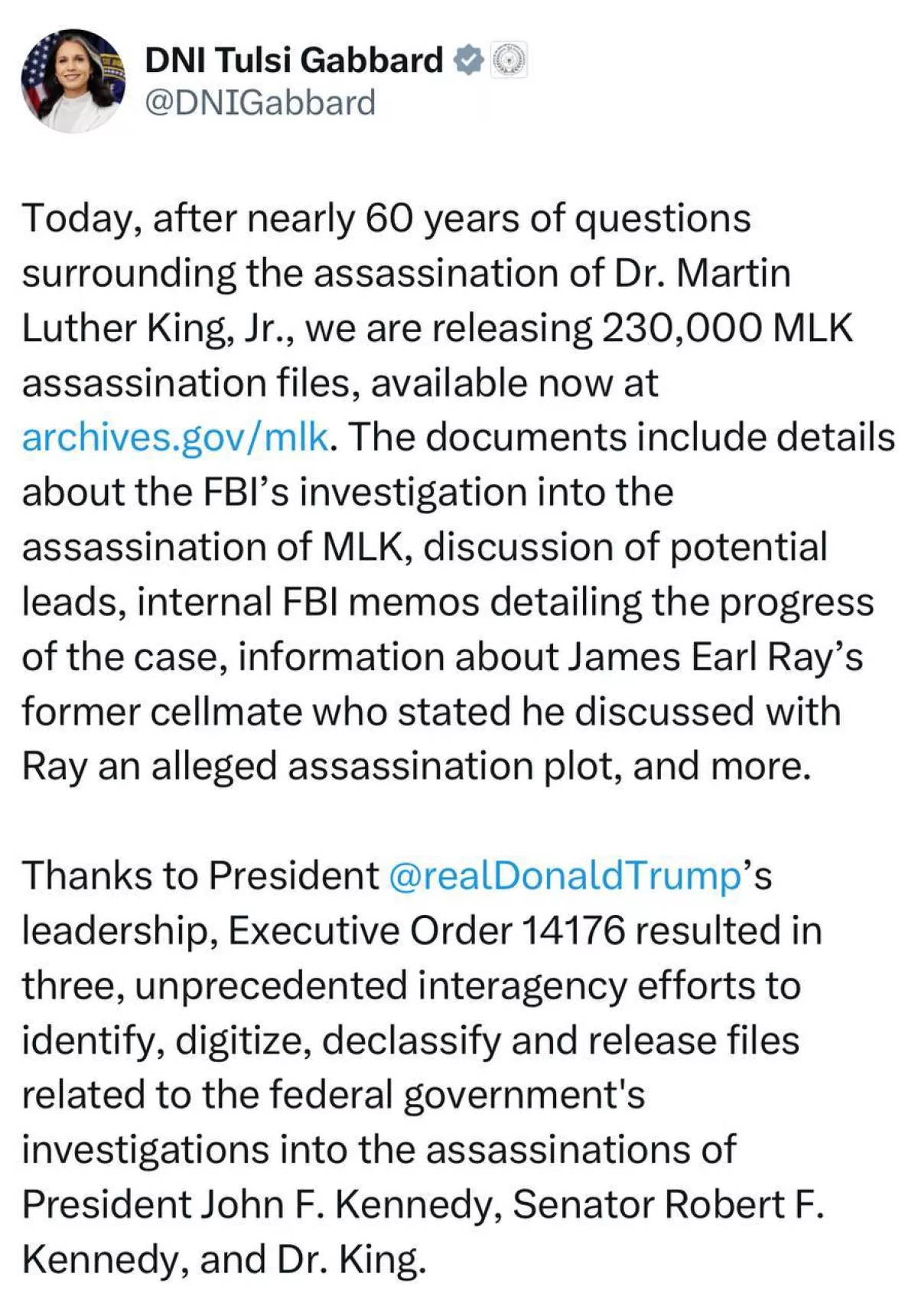King’s murder: Trump administration declassifies FBI files PHOTO
The administration of U.S. President Donald Trump has released FBI documents related to the assassination of Martin Luther King Jr., said National Intelligence Director Tulsi Gabbard on the social network X.

According to her, nearly 60 years later, 230,000 files connected to the murder have been made public.
“The documents include details about the FBI’s investigation into the assassination of MLK, discussion of potential leads, internal FBI memos detailing the progress of the case, information about James Earl Ray’s former cellmate who stated he discussed with Ray an alleged assassination plot, and more,” she wrote.

Martin Luther King Jr., one of the most famous leaders of the African American civil rights movement, was killed on April 4, 1968, in Memphis, Tennessee, at the age of 39. King’s death triggered a wave of protests and mass riots across the country: they spread to more than 100 cities and became one of the largest protest movements in the U.S. since the Civil War.
Shortly before his assassination, King led a march in Memphis supporting striking workers. On April 3, a day before the shooting, King delivered his famous speech “I’ve Been to the Mountaintop” to his supporters despite numerous threats. James Earl Ray, a repeat offender, was sentenced to 99 years in prison for King’s murder. He died in prison in 1998. However, the preacher’s death has generated numerous conspiracy theories suggesting that not only a lone gunman but also organised groups may have been involved in the assassination.
In January 2025, Trump ordered the preparation of a plan for the full release of materials related to the murders of the 35th U.S. President John F. Kennedy, his younger brother, former U.S. Attorney General Robert Kennedy, and preacher Martin Luther King Jr. The Republican promised to do this both during his first presidential term and in his second presidential campaign.
According to Trump, the disclosure of information about these assassinations “serves the public interest,” despite the fact that “no congressional law requires their disclosure.”
By Vugar Khalilov








